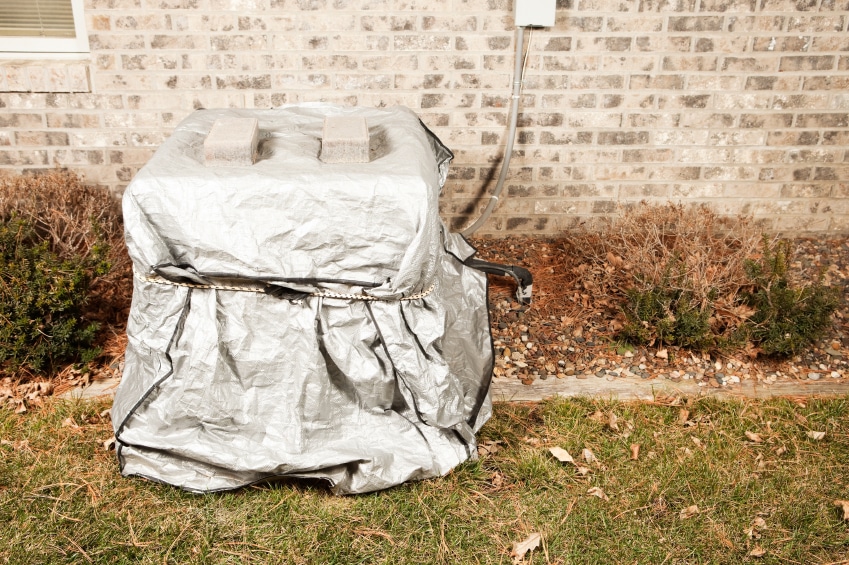Your central AC system is a costly investment. So it only makes sense to do whatever you can to prolong the lifespan of its parts and components. Many homeowners consider using an air conditioner cover to protect their outdoor AC unit from the harsh cold. An AC cover is designed to keep out dirt and debris, but, surprisingly, it’s not the best choice for keeping your outdoor unit protected from the elements.

Read on as we take a closer look at 5 reasons to avoid using AC covers during the colder months.
1. Increased Moisture Retention
AC covers can trap moisture inside the unit, creating an environment conducive to rust and corrosion. During winter, moisture from snow, rain, and humidity can get trapped under the cover. Since the AC unit is typically not running in the cold months, any moisture that accumulates has nowhere to escape. Over time, this trapped moisture can cause the metal components of the unit to rust, potentially leading to costly repairs.
2. Restricted Airflow
Air conditioning units are designed with ventilation systems that allow for airflow to prevent moisture buildup and facilitate proper functioning. By covering your AC unit, you block airflow and may encourage the growth of mold or mildew. This lack of airflow can create damp conditions inside the unit that could lead to long-term damage. Ensuring that the unit has proper airflow, even in the colder months, can help it stay in optimal condition for the next cooling season.
3. Damage to the Exterior
The materials used for AC covers—often plastic or vinyl—may not be designed to withstand harsh winter conditions. Exposure to freezing temperatures and high winds can cause these covers to crack or deteriorate, leading to the cover itself becoming a potential hazard for your AC unit. A damaged cover may also result in it being ineffective at providing the protection you intended.
4. Increased Risk of Pest Infestation
Covering your AC unit can create a perfect hiding spot for pests such as rodents, insects, and birds looking for shelter during the colder months. These pests may nest inside the cover, potentially causing damage to the wiring and components of your AC. Furthermore, when you remove the cover in the spring, you may unknowingly disturb a nest, leading to unwanted surprises.
5. Affects Cooling Efficiency
The primary function of an AC unit is cooling the air during the warmer months, and regular maintenance is key to ensuring it operates efficiently. By using a cover in the winter, you might unknowingly hinder your ability to maintain the system properly. For example, covers may trap dust, dirt, and debris, leading to blockages in the unit’s vents or evaporator coils when it’s time to turn the AC on again.
While it may seem like a good idea to protect your AC unit with a cover during the colder months, it’s often better to leave it uncovered. Instead, focus on annual preventive maintenance and keeping the area around the unit free to plants, shrubs, and debris. And for tips on caring for your HVAC system, contact Optimum Air today.